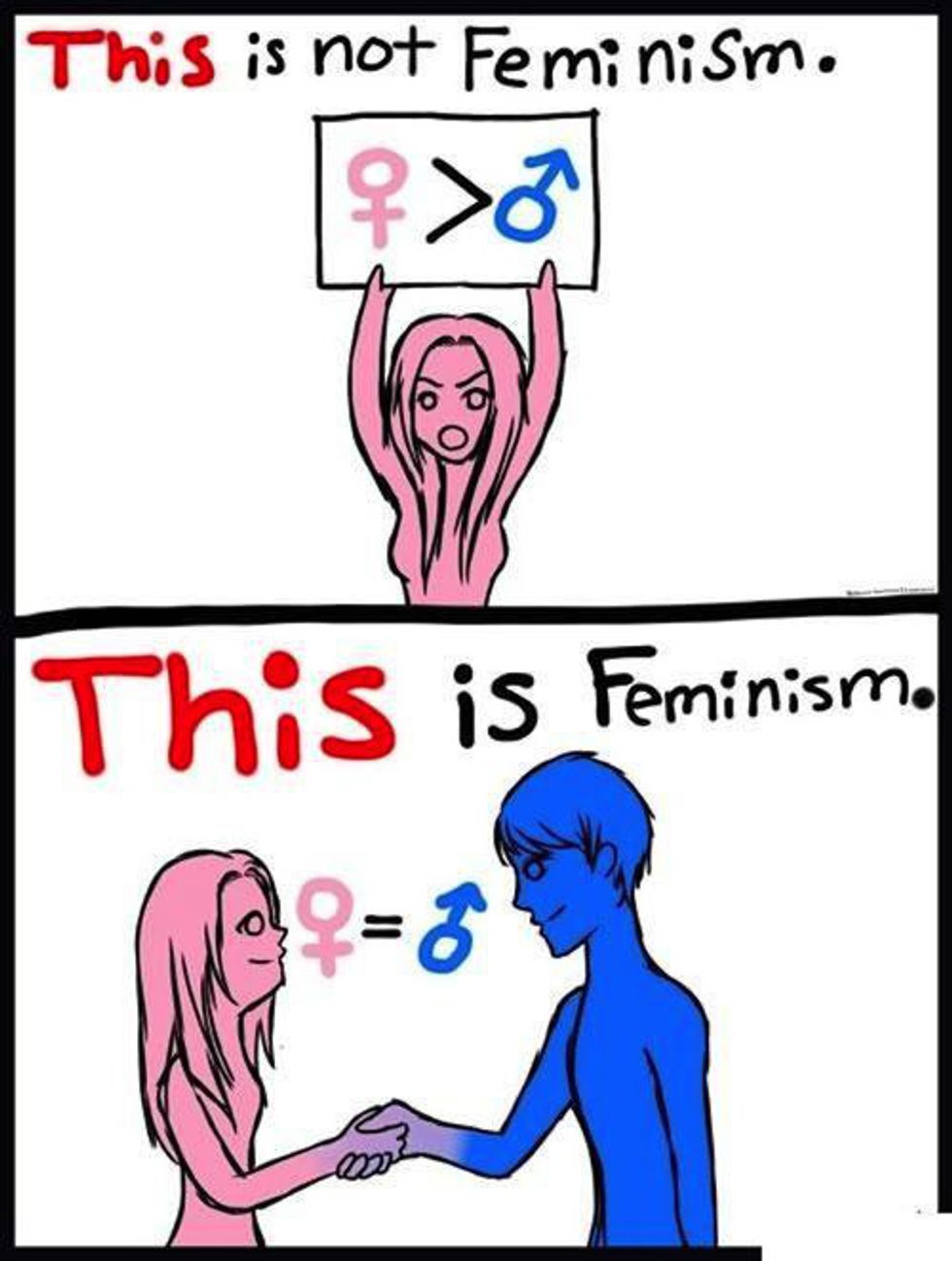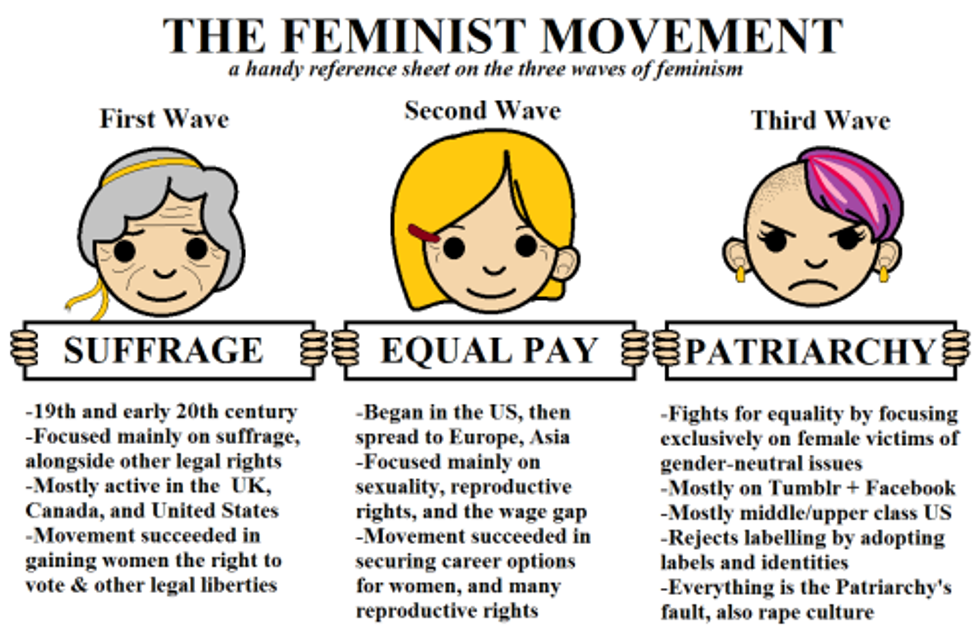It’s not negative to be a feminist if equality really is the overall goal. Feminism as a social movement was meant to bring about gender equality in a society that desperately needed it. It was rooted in goals of elevating women to share equal footing with men in both the domestic and public spheres, which included changing the gender differences in the work field and allowing women the means to secure socioeconomic independence.
First wave feminism focused on legal issues, primarily granting legal rights that were previously denied to women. These rights included women’s suffrage. Second wave feminism fought to change domestic restrictions and workplace discrimination. They also focused on issues such as women’s reproductive freedom and the passing equal rights amendments. These movements created significant positive changes in American society.
That being said, there are several things wrong with the present third-wave feminist movement, especially when considering the approach of radical feminists. It has become the norm to shame men for their common behavior and assign the negative traits of a few to the entire male population. Not all men are sexist, and they’re certainly not all rapists.
A society is being created in which men are scared to even say hello to women in fear of being accused of sexual harassment. And while it is highly important to raise awareness for domestic violence and sexual assault, it seems the issue is portrayed in a singular manner. Very seldom do we hear of the problems male victims face even though their victimization is much more common than most people know.
Fighting for the rights of women in regards to these issues while completely ignoring the same issues faced by men does not promote ideas of equality. Not all men are monsters as a lot of radical feminists attempt to portray them. In fact, most men are highly respectable people who fully support women’s claim to equality. Portraying them all in a negative manner in order to help raise awareness for female issues is in itself sexist.
Another issue that third-wave feminists focus on are the problems of gendered-occupations and unequal pay between the sexes. It is true that women tend to take jobs in the service and care fields, which typically pay less than some counter occupation fields predominantly made up of male workers.
But is it fair to claim that this gender differentiation among occupations can be blamed on men? The original split after the Industrial Revolution was due to the social norm that men were the primary bread-winners of the family. They were expected to be able to financially support the family on their own. Women who took jobs often did so for extra spending money or to help in much smaller ways.
Nowadays the concept of the male bread-winner is all but obsolete. Yet women still prefer to go into service and care jobs knowing these jobs pay less. Instead of blaming the men for this, we should realize that women have ample opportunity to get into other occupation fields but choose not to.
For example, the number of female college students who go to school for nursing instead of earning a medical degree to be a doctor is drastic. This is not because these women are forced to be nurses instead of doctors. It’s a decision they consciously make on their own. The same can be said for the vast number of females who go into education fields instead of pursuing degrees in engineering or computer science, which earn more money. Females know which majors will support them the best financially, yet go to school for occupations they believe they will enjoy more instead. This cannot be blamed on men.
It’s time we realize that in today’s modern society women do have the rights to make their own decisions and determine their own futures. It takes work and, chances are, some will face obstacles. But blaming men for all of our problems is completely ridiculous. It’s even more absurd to group all men together in a negative light just to benefit our “cause.” Men are not monsters out to prey on and discriminate against women. It’s time we acknowledge that fact.























